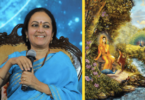At first glance the title Arranged Marriage leads you to think of the ‘sad plight’ of ‘third world’ women. Or, it lets you expect a romance in which the ravished heroine, married under family compulsion, finally falls in love with her husband. But you have to keep in mind that the title was chosen by Chitra Banerjee Divakaruni, who is well known for her clear eyed realism about both American and Indian contexts.
Divakaruni is an Indian settled in America. In her collection of 11 short stories – ‘Arranged Marriage’, barring one story (The Bats) all other belong to immigrant women, who while recreating Indias in their homes abroad, come across western ideas, values, modes of conduct and new opportunities. These women take stock of their own conditions and make decisions to usher in changes.
[color-box color='' customcolorpicker='' rounded=false dropshadow=false]Divakaruni’s women are caught between their Indian upbringing and their experiences with the culture of America. The self-perceptions of these women are dramatically altered.[/color-box]
In the 90s Divakaruni worked as a volunteer at a centre for battered women. She then started MAITRI – a helpline for south Asian women in abusive situations. This led to the genesis of ‘Arranged Marriage’. Little wonder that the stories portray arranged marriage as a bleak landscape in which the women have only their courage to depend on.
Divakaruni’s women are caught between their Indian upbringing and their experiences with the culture of America. The self-perceptions of these women are dramatically altered. They acquire new and different lenses to look at themselves. These immigrant families try to re-create a mini India in their homes. Their domestic sphere becomes the site of cultural transplantation.
Jayanti, who moves to Chicago in ‘Silver pavements, Golden Roofs’ watches her “Aunt ladle more dal into his plate” and experiences “a strange sense of disorientation” which makes her wonder “whether I’ve left Calcutta at all.” In ‘Clothes’ Sunita describes her home as a “world where everything is frozen in place” as if she had never left India. She covers her head with her sari, serves tea to her mother-in-law’s friends, never addresses her husband by his first name etc. Naturally she wants to “work in the stores … to stand behind the counter… and ring up purchases”. Asha in ‘Meeting Mrinal’ has spent nearly two decades in America. She thinks of “how hard she had always tried to be the perfect wife and mother, like the heroines of mythology I grew up on – patient faithful Sita, selfless Kunti”. The subservient Sita (even the ideal Ram too) is bound to lose when faced with a life full of American emphasis on women’s independence and equality.
[color-box color='' customcolorpicker='' rounded=false dropshadow=false]Years later we find him still wondering “how much she must have hated me” to have given up her child. [/color-box]
In ‘The Disappearance’ the husband had to put his foot down repeatedly when the wife wanted to get a job, or go back to school, or buy American clothes. They have a little boy and the wife is a homemaker. The wife goes for her evening walk and disappears. Everyone suspects crime. The husband gradually discovers that her jewellery too was gone and concludes the disappearance was planned.
Years later we find him (living in a home for seniors, his second wife dead, his daughters moved away to different towns, his son not on speaking terms with him) still wondering “how much she must have hated me” to have given up her child. On the other hand, here is what Mrinal, a successful professional, is proud of in India – “The freedom. The power. Walking into a room full of men knowing none of them can push me around. Seeing the reluctant admiration in their eyes when I close a tough deal” but she longs “to dwindle into a wife”. The truth is never simple.
Walking out or entering into a live-in relationship has its own set of problems. “Thanks to the pill and his easy going attitude” Meera enjoys the “space” that Richard gives her but the protagonist in ‘The Word Love’ keeps on asking herself “what will you remember when it is all over?” and “how he’d watched the red-haired waitress at the Mexican restaurant last week” and “a part of (her) kept counting the days”. Sexual freedom is not synonymous with happiness.
[color-box color='' customcolorpicker='' rounded=false dropshadow=false]Making choices is a recurrent theme in this book and the woman in these stories view themselves as having choices.[/color-box]
The immigration and the resultant exposure to cultural changes make women feel liberated as well as trapped. In most of Divakaruni’s stories they come out of their victim mode and emerge as stronger and self-reliant. American values beckon those women leading constricting life but they do not go overboard. They learn to acclimatize. They are selective. They preserve some Indian values but also abandon some.
Making choices is a recurrent theme in this book and the woman in these stories view themselves as having choices. The only woman, who does not view herself as having a choice, is in ‘The Bats’ – the story which unfolds in India. Grandpa-uncle uses poison to catch the bats and the little girl wonders “you would have thought that after the first week bats would have figured it out and found another place to live. But no… there’s something that keeps pulling them back here” just as her mother is pulled back into marriage because she “couldn’t stand it, the stares and whispers of the women down in the market place. The loneliness of being without him”.
Each story provides a different take on arranged marriage because the individual in each story is different. Divakaruni takes issue with the rigidity of tradition – for values need to reshaped with the demand of new situations. No judgements are passed. Being a wife, a homemaker, enjoying motherhood or sexual freedom, paying the cost to achieve professional success are the issues each woman faces. The stories leave a deep impression; a must read goes without saying.
Be a good Samaritan: If you liked this review, please share it with others. If you did not, share it with us in the comments below 🙂
We regularly publish original book reviews which you can be read here. Contact us if you are an author/publisher and want us to review your work.
Our affiliates:
If you would like to purchase “Arranged Marriage” by Chitra Banerjee Divakaruni, you can do so from our affiliates at
Flipkart: Arranged Marriage by Chitra Banerjee Divakaruni
Amazon (Paperback): Arranged Marriage: Stories
Amazon (Kindle Ed.): Arranged Marriage
Tell-A-Tale gets a small share of the purchases you make from the affiliate link, helping us bring you the stories you love to read.




